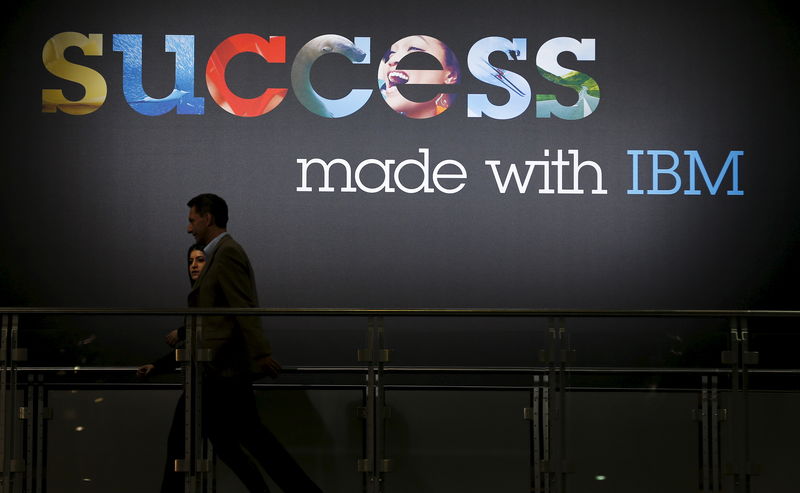By Paul Sandle
BARCELONA (Reuters) - Major corporations are learning to defend against start-ups that threaten their business models, hitting back by adopting the disruptors' playbook, according to a survey of top executives by computer services firm IBM (NYSE:IBM).
The proportion of executives who thought competitors were set to flood into their industry has halved from 54 percent to 26 percent compared to two years ago, the broad-based poll of business decision-makers showed.
"There's been a feeling historically that the elephants can't dance, the incumbents will find it hard to respond and that everyone will be Uber-ed or Airbnb-ed out of existence," Mark Foster, senior vice president of IBM Global Business Services, told Reuters in an interview.
"But what we are seeing is actually there is a limit as to how far that can go."
While some sectors had been hugely disrupted by new digital entrants and some intermediaries pushed out, many of those changes were now being led by existing industry players, he said.
Disruption is a catch-all term for the use of digital technology to up-end existing business models, for example Uber's impact on the taxi industry by using smartphones to connect riders with drivers, and pricing according to demand.
But just 27 percent of the executives surveyed said they were experiencing significant disruption, an unexpected finding given the deluge many predicted, IBM said. Only 23 percent said the big drivers of change were from outside their industries.
Digital giants, like Google (NASDAQ:GOOGL), Apple (NASDAQ:AAPL) and Facebook (NASDAQ:FB), continued to concentrate their power in some industries, but according to the executives surveyed they were not leading the disruption, and start-ups were increasingly quiescent, the survey found.
Instead, 72 percent said it was the most innovative incumbents who were leading the disruption, including in industries targeted by start-ups such as financial services.
IBM said the incumbents had become better at spotting and acquiring nascent disruptors. They had also realized the need to find partners, even sharing physical assets and people with them, to acquire new skills.
They are investing in the technologies that facilitate the sharing of data across organizations - such as the Internet of Things, which bridges physical and digital assets, and blockchain.
"Disruption hasn't gone underground," IBM said in its report released before the start of the mobile industry's biggest event, the Mobile World Congress in Barcelona.
"Instead, it's emerging as a capability incumbents are ready to embrace."
IBM surveyed 12,854 top executives, such as chief executives and finance directors, from 112 countries for its report.
"Who Says Elephants Can't Dance" was the title of the memoir of 1990s era IBM CEO Lou Gerstner, who is credited with bringing the company back from a near-death experience by shifting it into software and services and exiting most hardware businesses.
